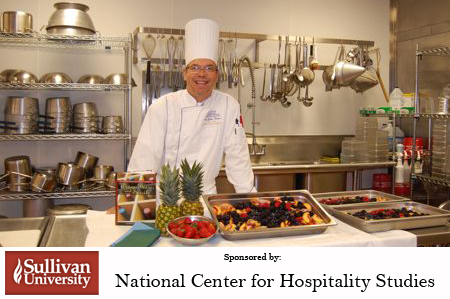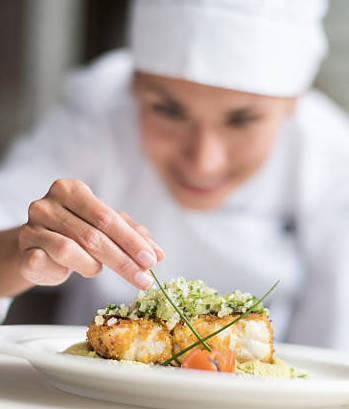There comes a time, in every school quarter, when the culinary students slow, and then stop. Some reset, some stagger through, and some never get started again.
It’s the same thing in every school, but in a technical school such as culinary, it can mean the difference between embracing the career or walking away.
Sometimes it’s the ability and the willingness to soldier on, to slog through the last few weeks of a quarter that when transferred to the kitchen makes a cook into a chef.

These moments may be over weeks, or even within a single, difficult shift, but the importance of moving forward cannot ever be overstated. We are in a service industry, one that has accelerated its growth and its pace greatly over the past generation. Where once we might have had an opportunity to catch our breath, now we run, 24-7. When we’re not physically open, we’re prepping for the next shift. It’s almost unheard of to be closed any day of the week because in this go-go society we are used to getting what we want when we want it.
I’m sometimes annoyed when I can’t find a place to eat out on Mondays, and then I realize that I’m closed as well, and I need to be in order to take a breath. And that break is one of the secrets to longevity, a technique that oftentimes will stave off burnout for a number of years. But there is a caveat with that as well, one which we warn our students and cooks against every day. Don’t let the breaks be too long, don’t let them be too frequent, and don’t fall victim to the complacency that can leave you behind.
It’s a delicate balance that is often hard to strike especially when you are a chef-owner or run a restaurant predicated on seasonal cuisine. The farmers will tell you that Mother Nature may slow down, but she never stops. And they are carried along on the tide 10 months out of every year. With new agricultural technology that may be extended to 11 or even 12 months that their attention is riveted on their crops.

While we grade and assess based on skill and experience, perhaps we should also include stamina in all its forms, the ability to last may be the determining factor for future success, so how do we even attempt to “teach” that?
It’s never easy for a culinary student to understand the physical and psychological toll that cooking may take on them. If they’ve been in competition as an athlete or artist they may appreciate how adrenaline may get you through a tough service. Muscle memory plays a huge role in conserving energy, with it at your disposal there should be little wasted motion.
Along with the obvious physical requirements of the job, the attitude for both physical and mental cannot be compromised too heavily by extracurricular activities. Burning the candle at both ends might work for a 20-year-old line cook, but will hamper most efforts to rise into any positions of authority. For that, you will need to have twice as much stamina, energy, and willpower.
Exercise. Working in the kitchen is aerobic, sometimes good for cardio, but you would be shocked to learn just how few steps you take in a shift. Line work is a waltz, not a marathon, you’ll need some outside activity. Eat well at least one meal a day.
I choose breakfast, my quiet time. A handful of cashews, some fries, a slice of melon interspersed with multiple tastings is not a diet, it’s an obstacle course. Alcohol is ever present, pharmaceuticals less so now, although the ones normally associated with the culinary world are more efficient than they used to be. I’m not here to preach, only to testify to the black hole both can become. The hubris of youth is never equal to these temptations, to paraphrase Julia Child, “everything in moderation.”
That quote, about the use of butter and cream in recipes, was in response to critics of the rich food that dominated cuisine in her day. That it applies equally to the stress and temptations of a cook’s life now, is no less correct. With the recent deaths and suicides of some in our profession and the agitation for a more in-depth look at the mental health of our industry, the time may be right to attack these issues head-on.
Maybe then the kitchen can finally become the sanctuary we all sometimes feel it is, and the future will include a variety of techniques to achieve that goal.

John Foster is an executive chef who heads the culinary program at Sullivan University’s Lexington campus. A New York native, Foster has been active in the Lexington culinary scene and a promoter of local and seasonal foods for more than 20 years. The French Culinary Institute-trained chef has been the executive chef of his former restaurant, Harvest, and now his Chevy Chase eatery, The Sage Rabbit.
To read more from Chef John Foster, including his recipes, click here.
























